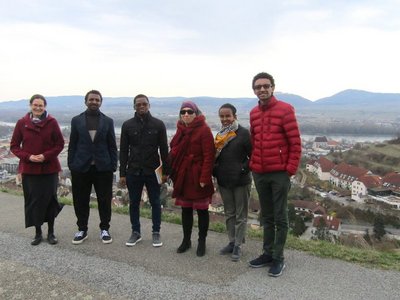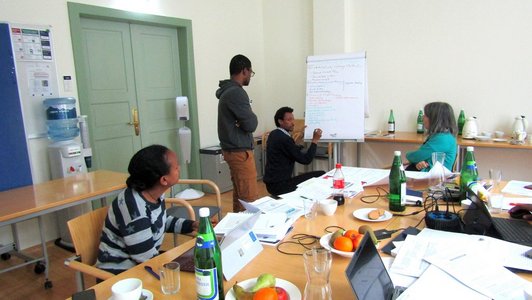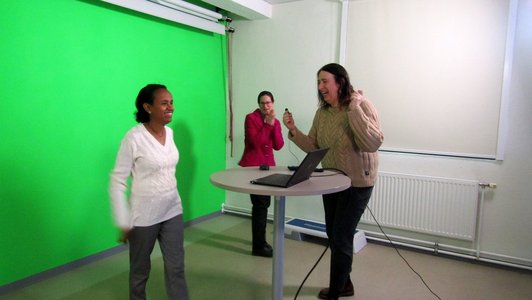

About one year into the project GIRT the team leaders of four partner universities in Ethiopia and Mozambique had the chance to meet in person in Krems. The staff exchange had been well prepared in the months ahead: since December 2022 four virtual short courses on qualitative interviewing were organized by the project coordinator Dr. Tania Berger of the University for Continuing Education Krems. Discussions on how to conduct research with female residents in informal settlements had started since and were continued in Krems.
The primary focus of the staff exchange was on a strategy to initiate transdisciplinary processes with local stakeholders in selected informal settlements in all four project regions (Addis Ababa, Bahir Dar and Mekelle, Ethiopia, as well as Nampula, Mozambique). Whereas inhabitants of informal settlements are generally in favour of upgrading and formalization, local governments often have reservations acknowledging these settlements. Working sessions with the GIRT coordinators sought to describe and compare the particular settings in the selected areas.
Each settlement was thoroughly discussed via a case study design approach in 20 steps. Having identified the local challenges and opportunities, theoretical foundations on transdisciplinarity were deepened in jointly studying transdisciplinary frameworks and methods. The consolidated knowledge will be used for capacity building of all project members and PhD students in the coming weeks. Dr. Kumela Gudeta Nedessa at Addis Ababa University (Ethiopia) will be responsible for coordinating upcoming, virtual short courses on transdisciplinarity.
The stay in Krems left enough time to work on tasks that demand the coordination of all teams. A day had been accorded to review the hitherto collected literature on women in informal settlements. António Manuel de Amurane from Lurio University (Mozambique) presented some of the preliminary findings of his team. This allowed for a cross-continental debate of living conditions in informal settlements. Researchers from Ethiopia were surprised about the tenure situation in Nampula’s informal settlements whereas the colleague from Mozambique was unfamiliar with the trend of constructing condominiums at the urban fringes of Ethiopian cities. The two-weeks stay thus enabled the research coordinators to learn from each others' experiences and knowledge.
One of the highlights of the staff exchange was to produce video recordings of the site presentations. The four research coordinators could benefit from the technical support of UWK’s media lab in the professional recording of their presentations. Dr. Atsede Desta Tegegne from Bahir Dar University (Ethiopia) pioneered in the video recordings and smoothed the way for her colleagues to follow.
Daniel Semunugus Negese from University of Mekelle (Ethiopia) had (re)joined the GIRT project only recently as a consequence of the conflicts in the Tigray region but was able to catch up very quickly. As an interdisciplinary research group composed of architects and social scientists team building and finding a common ground takes time and communication efforts. The staff exchange was a learning journey for the whole team and will facilitate further cooperation and implementation of the project.


